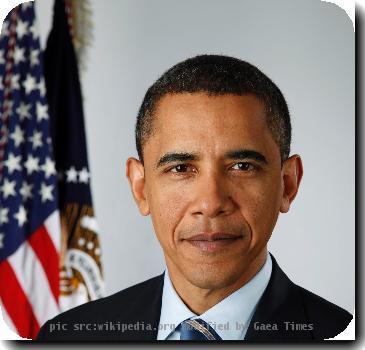British and US government funding counterterrorism police unit in Yemen
By Meera Selva, APSunday, January 3, 2010
Britain, US funding Yemen anti-terror police unit
LONDON — Britain and the United States will jointly fund a counterterrorism police unit in Yemen amid fears of an increasing threat of international terrorism emanating from the country, the British government said Sunday.
Prime Minister Gordon Brown’s office said that he an President Barack Obama agreed to “intensify joint U.S.-U.K. work to tackle the emerging terrorist threat from both Yemen and Somalia” in the wake of the failed Detroit terror plot.
“Amongst the initiatives the PM has agreed with President Obama is U.S.-U.K. funding for a special counter-terrorism police unit in Yemen,” the statement said.
The U.S. embassy in Yemen closed on Sunday, citing ongoing threats by the al-Qaida branch that has been linked to the failed Christmas Day bombing attempt of a U.S. airliner headed to Detroit. The embassy would not say if there was a specific threat.
The confrontation with the terrorist group’s branch in Yemen, at the tip of the Arabian Peninsula, has gained new urgency since the 23-year-old Nigerian accused in the attack, Umar Farouk Abdulmutallab, told U.S. investigators he received training and instructions from al-Qaida operatives in Yemen. President Barack Obama said Saturday that al-Qaida’s branch in Yemen was behind the attempt.
Downing Street said that Britain is already helping to train Yemeni counter-terrorism officials, but a U.K. government spokeswoman said this is the first time the counter-terrorism police units have been confirmed.
In Washington, a senior administration official said American and British forces already provide the Yemeni police counterterrorism assistance, and that he’s unaware of any new joint effort that is ready to be announced. The official spoke on the condition of anonymity in order to discuss sensitive matters.
Asked to clarify, the U.K. government spokeswoman said the initiatives in Yemen are part of ongoing work between the U.K. and the U.S and that the cost of the counterterrorism police unit will be met by existing funding commitments to Yemen.
The spokeswoman said Britain is forecast to give more than 100 million pounds ($161 million) to Yemen in 2011.
The spokeswoman, speaking on condition on anonymity in line with U.K. government policy, was unable to say how long Britain had been working on initiatives in Yemen.
Downing Street also said in its statement the prime minister and president believe that in Somalia “a larger peacekeeping force is required and will support this at the UN Security Council.”
The statement said Britain and the U.S. would support Yemen’s coast guard operation. Pirates operating in the waters between Somalia and Yemen have seized four ships in the past week.
Brown called last week for a high-level international meeting later this month to devise ways to counter radicalization in Yemen.
Downing Street said the government of Yemen had been consulted over the decision to boost the country’s coast guard and police operations.
The White House said Washington stands ready to work with allies to fight extremism. The official welcomed Brown’s move earlier to lead an international conference on Jan. 28 to devise ways to counter radicalization in the country, the poorest in the Arab world.
The official also was unable to confirm any plans to push for a larger U.N. peacekeeping force for Somalia.
_____
Associated Press writer Philip Elliott in Honolulu contributed to this report.
Tags: Africa, Barack Obama, Christmas, District Of Columbia, East Africa, Embassies, England, Europe, London, Middle East, National Security, North America, Somalia, Terrorism, United Kingdom, United States, Western Europe, Yemen











